Recovery of fauna and native ecosystems are planned in the provinces of Cuenca, Guadalajara and Teruel. With this pioneering initiative, Spain joins the network of landscapes of Rewilding Europe, which thus has 10 areas of action throughout Europe.
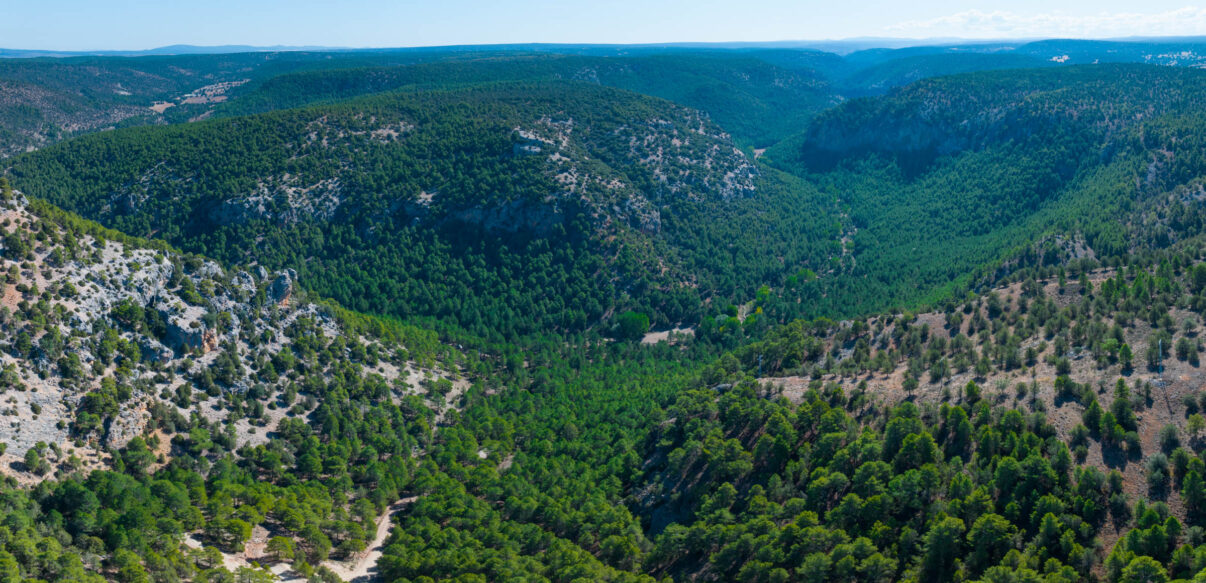
Rewilding is a comprehensive and innovative approach to nature conservation that focuses on the recovery of natural processes and wild species, so that they can drive the economic development of the area, while generating more heterogeneous territories with greater diversity. Rewilding seeks that, after initial support, ecosystems can recover and maintain by themselves, within socially acceptable limits.
This approach inspires the pioneering initiative Iberian Highlands rewilding landscape, a long-term action plan promoted by Rewilding Europe and Rewilding Spain (Fundación Española de Renaturalización) that will be launched in a territory of 850,000 hectares that covers the regions of Castilla-La Mancha and Aragon. 80% of this area is located in the provinces of Guadalajara and Cuenca, while the remaining 20% is in Teruel. It is made up of three main contiguous areas: Serranía de Cuenca, Alto Tajo and Montes Universales, which are joined by surrounding areas that are mostly protected and are part of the Natura 2000 network.
This landscape holds enormous rewilding as high levels of depopulation and one of the lowest population densities in Europe provide opportunities to give more space back to wildlife, the recovery of ecological processes, the restoration of habitats and the creation of a network of economic activities and employment linked to the values of nature throughout this territory.
Iberian Highlands was launched today in Cuenca at an event attended by the Regional Minister for Sustainable Development of Castilla-La Mancha, José Luis Escudero, as well as Frans Schepers, Executive Director of Rewilding Europe, and José María Rey, President of Rewilding Spain.
A holistic approach
The rewilding of the Iberian Highlands promoted by Rewilding Europe and Rewilding Spain takes into consideration three focal points:
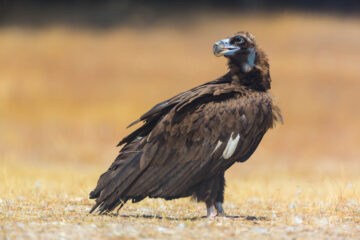
1. Restore ecological processes and recover disappeared species so that ecosystems become functional again.
Iberian Highlands initiative seeks to restore the integrity and original ecological functionality of the territory by focusing on the activity of native faunal species whose interaction restores biological processes typical of the area. Ecological integrity will be restored through a focus on re-establishing more scavenging across the landscape, with a cinereous vulture reintroduction in development, along with actions to support the natural recolonisation of bearded vultures, and a habitat feasibility study to be carried out for the eventual release of captive-bred red kites. There are also plans to reintroduce the missing Iberian lynx back to the top of the food chain and to restore natural grazing in arid and fire-damaged areas – as well as revitalising rivers and restoring lagoons in steppe habitats. Doing so, the food chain of these spaces will be completed with natural processes that will revitalize the land and its inhabitants.
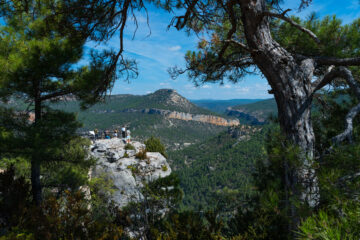
2. Improving the socio-economic development of the landscape through nature-based solutions.
Iberian Highlands initiative will also benefit socially and economically from a new vision to create more resilient forest landscapes through the protection of old-growth forests using different compensation schemes, as well as working with municipalities and businesses to create added value for the carbon-capturing power of forests. One of the objectives of the initiative is the creation of a Business Plan in which opportunities for the creation of nature-based initiatives (tourism, local products, educational programs …). And alongside the ecological connections being made, social connections will be formed that will enable local people to be part of the landscape’s regeneration. Nature-based initiatives will become the backbone of revived local economies, with support and engagement with rewilding activities engrained at a local, regional and national level.
Rewilding Europe and Rewilding Spain will specifically support entrepreneurs and new businesses through the Rewilding Europe Capital program, a funding tool to support nature-based businesses.
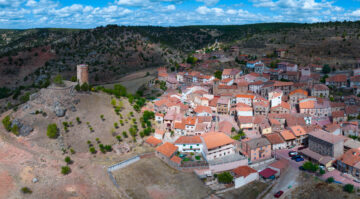
3. Building close collaborations and partnerships with stakeholders and local communities to ensure full engagement while working jointly on a shared mission.
It is a vision that includes the establishment of a central network of protected areas in which nature itself can strengthen biodiversity and the function of its ecosystems, boost the resilience of the territory to climate change and provides positive impact on people through the generation of opportunities for economic development.
An initiative based on strong partnerships
With finding provided by donors such as the Endangered Landscapes Programme and Cartier for Nature coordinated by Rewilding Europe, Iberian Highlands rewilding landscape holds an action strategy for the next three years that will be executed by four partner organizations. Rewilding Europe will be responsible for the global management of the initiative, while Rewilding Spain, as the organization’s partner in Spain, will be responsible for the supervision and execution of actions on the ground. This includes the work of the Terra Naturalis association on wildlife reintroduction and that of the Micorriza association for the implementation of natural grazing and the development of educational programs.
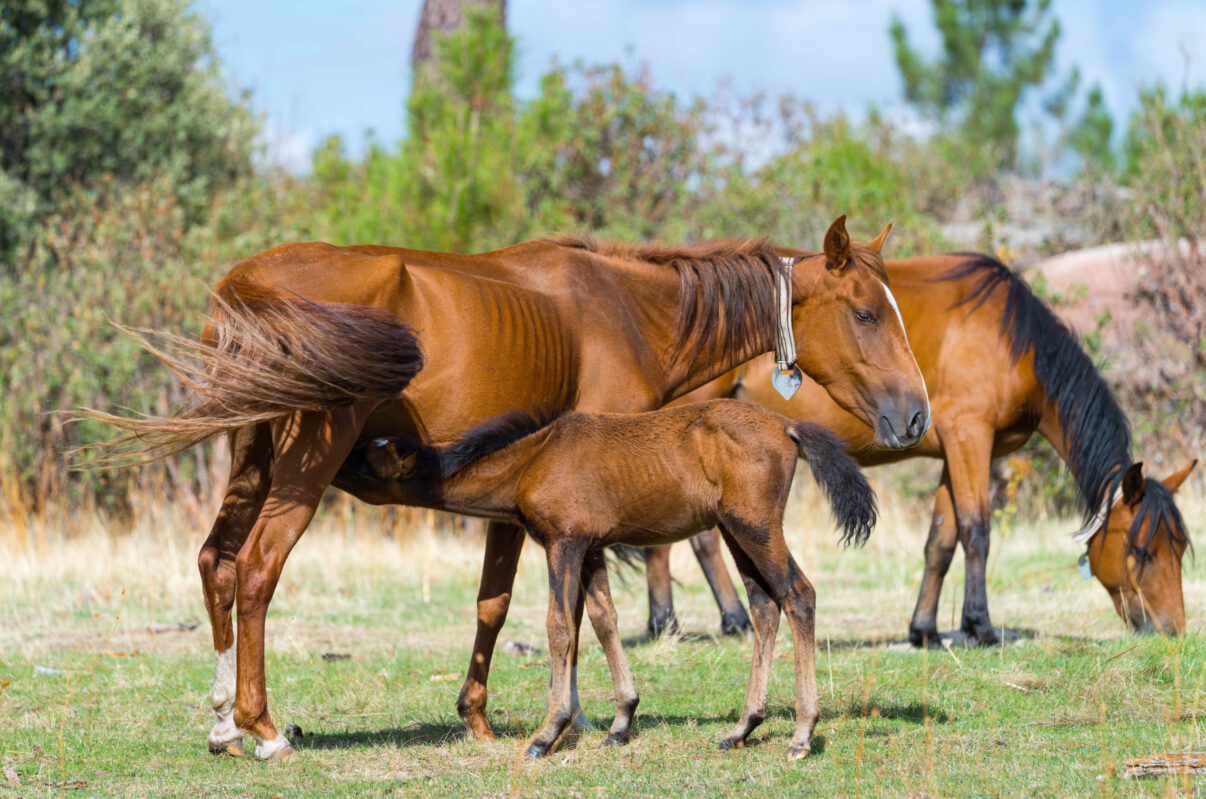
Hooves and wings on the ground
In the last year, important renaturation actions have already been carried out on this landscape with the participation of Rewilding Spain. Natural grazing has been promoted, which supports fire prevention, with the release of a herd of taurus (species descendant of primitive cows) in Frías de Albarracín. In addition, a group of semi-wild horses has settled on a territory of 1,485 hectares in the town of Mazarete. The initial herd of 11 horses has already grown with the birth of the first foal last July and new releases are scheduled that will increase the population up to 20 animals.
On the other hand, a program of reintroduction of the black vulture in the Alto Tajo is already underway in collaboration with the Junta de Comunidades de Castilla-La Mancha. Last September, seven specimens equipped with GPS transmitters that allow monitoring their movements were released. As for the bearded vulture, efforts to attract specimens to this territory and that a natural recolonization takes place are now focused on the creation of specific feeding points fitted with cameras for monitoring.
“We are facing a great opportunity to demonstrate that sustainable socioeconomic development is possible in the Iberian Highlands, where rewilding is an engine that benefits the people and communities of the area and brings hope to a landscape that is suffering demographic and economic decline decades ago”, says Pablo Schapira, Team Leader of Iberian Highlands.
Long-term commitment
Rewilding of a large territory is a long process in time. The vision of Rewilding Europe and Rewilding Spain is that the actions will be extended over a period of 20 years, during which the fruits of the actions will begin to be seen and a truly resilient territory will be created both from an ecological, economic and social perspective.
“Spain has huge potential for rewilding,” says Frans Schepers, Executive Director of Rewilding Europe. “I hope Iberian Highlands will become an inspiring example for other organisations, municipalities and landowners in Spain to follow its approach to demonstrate the benefits that it can bring to both nature and people.”